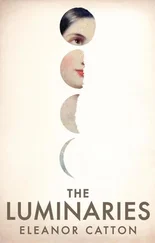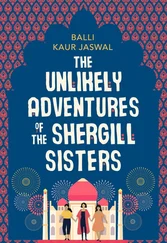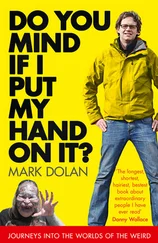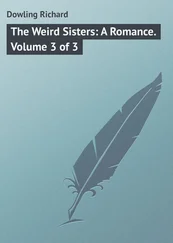
the weird sisters
ELEANOR BROWN
Dedication
TO CHRIS
For springtime, for a rock-and-roll show, forever
Contents
Cover
Title Page the weird sisters ELEANOR BROWN
Dedication
Epigraph
Prologue
Chapter One
Chapter Two
Chapter Three
Chapter Four
Chapter Five
Chapter Six
Chapter Seven
Chapter Eight
Chapter Nine
Chapter Ten
Chapter Eleven
Chapter Twelve
Chapter Thirteen
Chapter Fourteen
Chapter Fifteen
Chapter Sixteen
Chapter Seventeen
Chapter Eightteen
Chapter Nineteen
Chapter Twenty
Chapter Twenty-One
Chapter Twenty-Two
Chapter Twenty-Three
Epilogue
Acknowledgments
About the Author
Copyright
About the Publisher Конец ознакомительного фрагмента. Текст предоставлен ООО «ЛитРес». Прочитайте эту книгу целиком, купив полную легальную версию на ЛитРес. Безопасно оплатить книгу можно банковской картой Visa, MasterCard, Maestro, со счета мобильного телефона, с платежного терминала, в салоне МТС или Связной, через PayPal, WebMoney, Яндекс.Деньги, QIWI Кошелек, бонусными картами или другим удобным Вам способом.
Epigraph
But we only called the fire brigade, and soon the fire engine came and three tall men in helmets brought a hose into the house and Mr Prothero got out just in time before they turned it on. Nobody could have had a noisier Christmas Eve. And when the firemen turned off the hose and were standing in the wet, smoky room, Jim’s Aunt, Miss Prothero, came downstairs and peered in at them. Jim and I waited, very quietly, to hear what she would say to them. She said the right thing, always. She looked at the three tall firemen in their shining helmets, standing among the smoke and cinders and dissolving snowballs, and she said, ‘Would you like anything to read? ’
– DYLAN THOMAS,
A Child’s Christmas in Wales
I dreamt last night of the three weird sisters.
– WILLIAM SHAKESPEARE, Macbeth
Prologue
We came home because we were failures. We wouldn’t admit that, of course, not at first, not to ourselves, and certainly not to anyone else. We said we came home because our mother was ill, because we needed a break, a momentary pause before setting off for the Next Big Thing. But the truth was, we had failed, and rather than let anyone else know, we crafted careful excuses and alibis, and wrapped them around ourselves like a cloak to keep out the cold truth. The first stage: denial.
For Cordelia, the youngest, it began with the letters. They arrived the same day, though their contents were so different that she had to look back at the postmarks to see which one had been sent first. They seemed so simple, paper in her hands, vulnerable to rain, or fire, or incautious care, but she would not destroy them. These were the kind you save, folded into a memory box, to be opened years later with fingers against crackling age, heart pounding with the sick desire to be possessed by memory.
We should tell you what they said, and we will, because their contents affect everything that happened afterward, but we first have to explain how our family communicates, and to do that, we have to explain our family.
Oh, man.
Perhaps we had just better explain our father.
If you took a college course on Shakespeare, our father’s name might be resident in some dim corner of your mind, under layers of unused telephone numbers, forgotten dreams, and the words that never seem to make it to the tip of your tongue when you need them. Our father is Dr James Andreas, professor of English literature at Barnwell College, singular focus: The Immortal Bard.
The words that might come to mind to describe our father’s work are insufficient to convey to you what it is like to live with someone with such a singular preoccupation. Enthusiast, expert, obsessed – these words all thud hollow when faced with the sandstorm of Shakespeare in which we were raised. Sonnets were our nursery rhymes. The three of us were given advice and instruction in couplets; we were more likely to refer to a hated playmate as a ‘fat-kidneyed rascal’ than a jerk; we played under the tables at Christmas parties where phrases like ‘deconstructionist philosophy’ and ‘patriarchal mal -feasance’ drifted down through the heavy tablecloths with the carols.
And this only begins to describe it.
But it is enough for our purposes.
The first letter was from Rose: precise pen on thick vellum. From Romeo and Juliet ; Cordy knew it at once. We met, we woo’d and made exchange of vow, I’ll tell thee as we pass; but this I pray, That thou consent to marry us to-day.
And now you will understand this was our oldest sister’s way of telling us that she was getting married.
The second was from our father. He communicates almost exclusively through pages copied from The Riverside Shakespeare . The pages are so heavily annotated with decades of thoughts, of interpretations, that we can barely make out the lines of text he highlights. But it matters not; we have been nursed and nurtured on the plays, and the slightest reminder brings the language back.
Come, let us go; and pray to all the gods/For our beloved mother in her pains . And this is how Cordy knew our mother had cancer. This is how she knew we had to come home.
Chapter One
Cordy had never stolen anything before. As a matter of pride, when our friends were practising their light-fingered shuffles across the shelves of Barnwell’s stores in our teens, she had refused to participate, refused even to wear the cheap earrings and clumpy lipstick or listen to the shoplifted music. But here she was in this no-name desert town, facing off against the wall of pregnancy tests, knowing full well she didn’t have the money to pay for one. A Wild West shootout: Cordy versus the little pink sticks at high noon.
She’d wanted to do this somewhere anonymous, in a wide-aisled store that hummed with soft, inoffensive music and belonged to a company, not a person, but those stores had long ago gotten smart, put anti-theft devices like hunch-shouldered guardians at the doors. So she was in this dusty little mom and pop drugstore, her stomach churning, cheeks bright with fire.
‘Strike up the drum; cry “Courage!” and away,’ she whispered to herself, and then giggled, one thin hand sneaking out to grab one of the boxes – any one, it didn’t matter. They’d all tell her the thing she already knew but refused to admit.
She slipped the box into her gaping shoulder bag with one hand, the other rooting around at the bottom for the remnants of her last, months-ago paycheck, the few loose coins buried in a grave of stale breath mints, lint, and broken pens. Along the way, she grabbed a toffee bar off the shelf and presented it to the cashier, digging for a few more pennies, her hand burning when she brushed against the box hidden in the loose depths.
Outside the store, a rush of elation. ‘Too easy,’ she said aloud to the empty street, her skirt whispering against the sidewalk, already gone hot and sullen in the rise of spring, her sandals so worn that she could feel the insistent warmth against her heels. The pleasure of the forbidden lasted until she had made it back to the house, ramshackle and dark, where she was staying, a few people crashed on the broken furniture in the living room, sleeping off last night’s excess. She yanked open the box, tossing the instructions in the direction of the trash can, and did the deed. Huddled on the toilet in the bathroom, tile cracked and shredding beneath her feet, staring at the pink line, pale as fading newsprint, her conscience caught up with her.
Читать дальше













